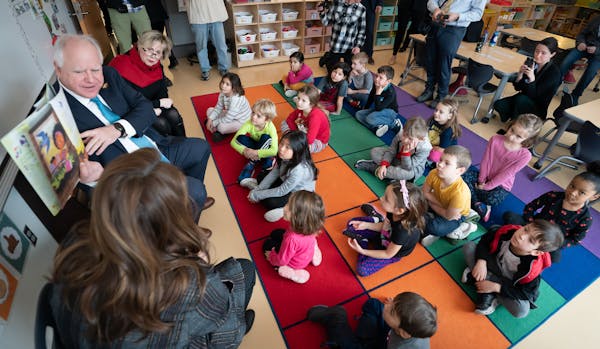ROCHESTER — Too many staff and not enough students are prompting Rochester Public Schools officials to once more consider millions of dollars in budget cuts.
District officials recommend cutting $14 million for the next fiscal year starting in July. That would mean axing the equivalent of about 144 full-time staff positions, including about 77 teachers — about 5% of teaching staff — a school administrator and special education staff.
According to district officials, the number of staff at Rochester schools has gone up by about 27% since 2012, from the equivalent about 2,111 full-time positions to 2,676.
At the same time, Rochester's student enrollment has only increased by about 7%; the district has lost about 600 students since fall 2020 and sits at about 17,100 students this year.
If the district doesn't rein in expenses, Rochester schools could face tens of millions of dollars in additional debt in less than four years, said John Carlson, the district's chief administrative officer.
"Obviously we would not let that happen, because we would have already been taken over by the state," Carlson said.
District officials planned for close to $20 million in budget cuts in 2022, but a combination of state and federal funding, donations and levy dollars largely made up that deficit. Rochester's remaining COVID money is set to be spent next year, however. The district's budget reduction proposal includes using $7.4 million in aid for the 2023-2024 year.
Rochester schools has close to a $400 million budget.
School officials estimate class size targets would slightly increase as part of the teacher cuts, with classes in some grades reaching as many as 30 or more students.
Carlson noted many classrooms are under the target caps and district officials review class sizes throughout the year to prevent them from hitting or surpassing those targets.
The board is set to hear more specifics and sign off on the budget-cutting process at its Feb. 7 meeting.
School officials have discussed bringing an operations levy increase referendum before voters this fall, while others point to Gov. Tim Walz's proposed education budget as a potential funding solution.
Even with those additional dollars, school board members appear resigned to making further cuts.
"Any money that we get from the state of Minnesota should not be applied to deferred structural balance," Board Member Julie Workman said. "We're going to have to do all of that regardless of what happens with the state because we are really out of line."

Want to share info with the Star Tribune? How to do it securely

'Safe recovery sites' would offer syringes, naloxone and more to people using drugs. The plan could be in peril.
New Minnesota GOP leaders seek peace with party's anti-establishment wing

Who is Republican Lisa Demuth, Minnesota's first House speaker of color?

